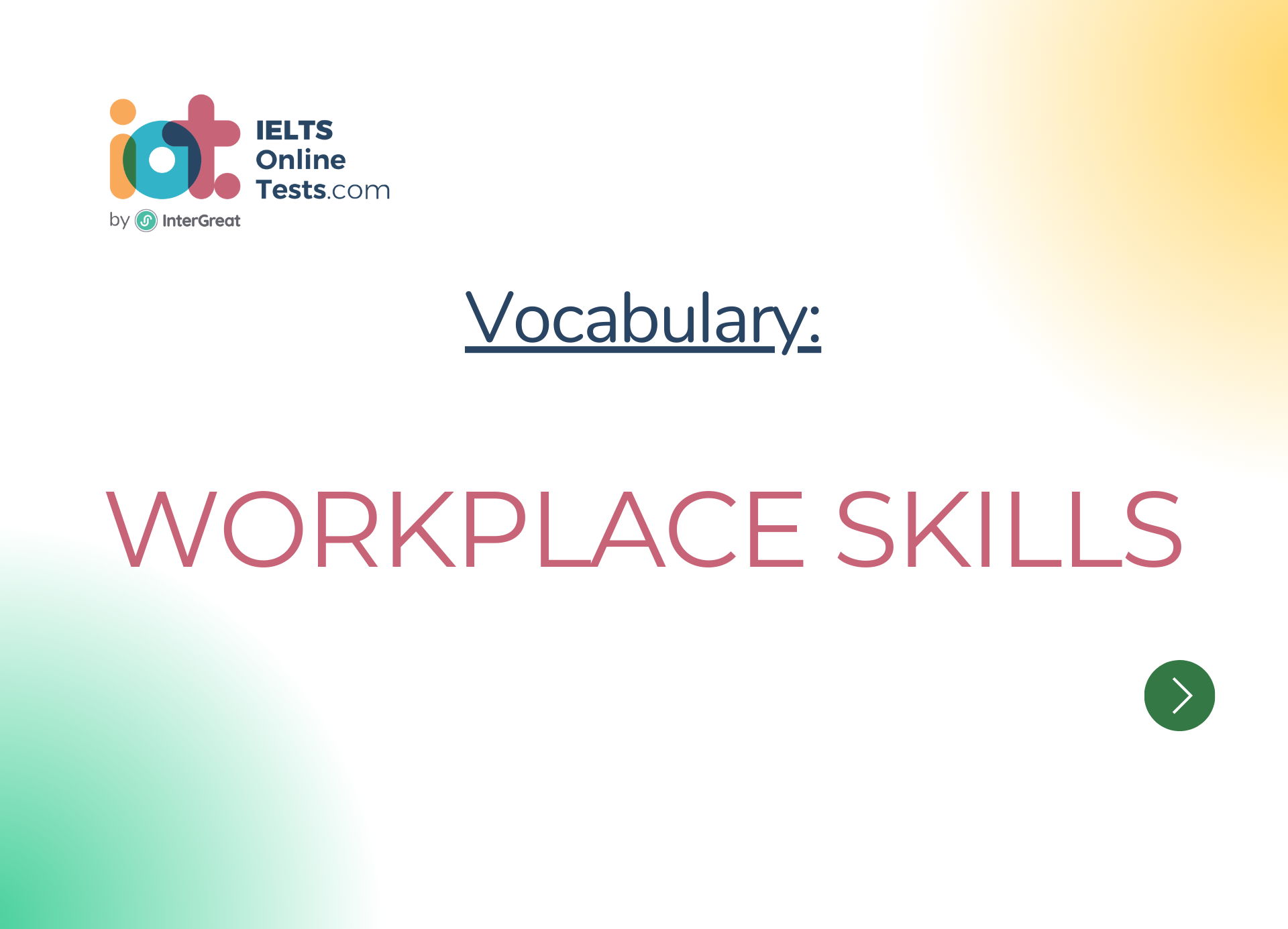
Workplace skills
Here are some vocabulary words related to "Workplace Skills" in detail, suitable for the IELTS band score range of 3.0-4.5:
I. Communication Skills:
Verbal communication: The ability to express ideas and information clearly and effectively through spoken words.
Nonverbal communication: The use of body language, gestures, and facial expressions to convey messages and emotions.
Listening skills: The ability to actively and attentively understand and interpret spoken messages.
Written communication: The ability to convey information and ideas effectively through written words.
Presentation skills: The ability to deliver information or ideas to an audience in a clear and engaging manner.
II. Teamwork Skills:
Collaboration: Working effectively with others towards a common goal.
Cooperation: Willingness to work together and support others in achieving shared objectives.
Conflict resolution: The ability to identify and address conflicts or disagreements in a constructive manner.
Interpersonal skills: The ability to build positive relationships and communicate effectively with colleagues.
III. Problem-Solving Skills:
Critical thinking: The ability to analyze situations, evaluate information, and make reasoned decisions.
Decision-making: The process of selecting the best course of action among available options.
Adaptability: The ability to adjust and respond positively to changing circumstances.
Creativity: The ability to generate new ideas and innovative solutions.
IV. Time Management Skills:
Prioritization: The ability to identify and rank tasks or activities based on their importance and urgency.
Organization: The skill of arranging and structuring work in an efficient and effective manner.
Goal-setting: The process of setting clear and achievable objectives.
Procrastination: The act of delaying or postponing tasks unnecessarily.
V. Leadership Skills:
Delegation: The ability to assign tasks and responsibilities to others.
Motivation: The ability to inspire and encourage others to achieve their best.
Decision-making: The ability to make sound decisions and take responsibility for their outcomes.
Communication: The skill of conveying ideas and instructions clearly and confidently.
VI. Problem-Solving Skills:
Analytical skills: The ability to break down complex problems into smaller components and analyze them systematically.
Resourcefulness: The skill of finding creative and practical solutions using available resources.
Initiative: The willingness to take the lead and proactively address challenges or opportunities.
Flexibility: The ability to adapt and adjust to new situations or changing requirements.
VII. Technical Skills:
Computer literacy: Proficiency in using computer software and applications.
Digital skills: Competence in using technology tools and platforms.
Technical knowledge: Expertise in specific technical areas relevant to the job or industry.
Data analysis: The ability to collect, analyze, and interpret data to inform decision-making.
Remember to practice using these vocabulary words in context, such as by creating sentences or engaging in discussions related to workplace skills. This will help you become more familiar and confident in using these terms accurately and effectively.




